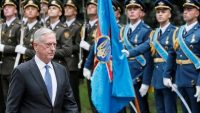
Nazi guards weren’t the only ones killing Jews during the Holocaust. Some — but not all — communities did it themselves first. Why?
As the United States deports a former Nazi concentration camp guard to Germany, the world has been reminded again of the popular image of the Holocaust as one of impersonal mass slaughter. In the death camps, Jews and other victims died at the hands of murderers who didn’t know their victims but were filled with anti-Semitic hate.
But by the time that the death camps’ gas chambers became operational, approximately half of the Jews who would perish in the Holocaust were already dead. Many of these Jews were tortured or killed by “ordinary” non-Jews at close quarters: in apartments, in streets, in the woods and anywhere else Jews could be found.… Seguir leyendo »
















